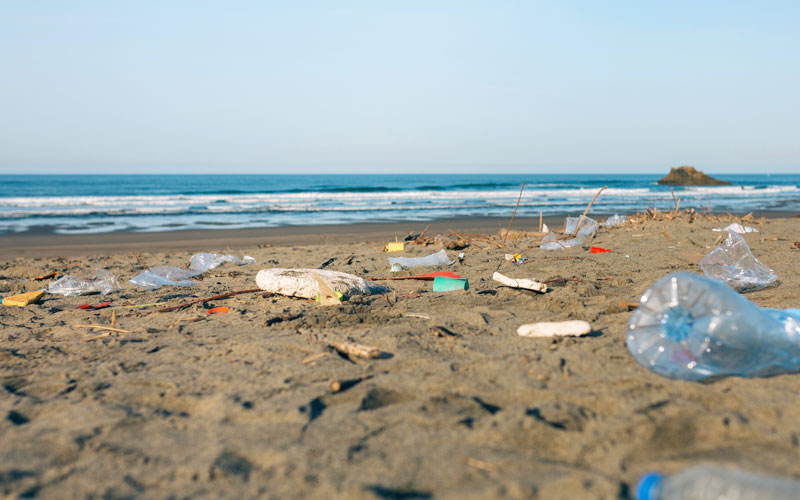
Beach cleanups provide an excellent opportunity to explore nature, build community, and keep our precious coasts crystal clean. Photo: Shutterstock
New Englanders love the beach. Whether it’s the salty seaweed scent lingering in the air while walking through Portsmouth, New Hampshire, or biking the Cape Cod Rail Trail in Massachusetts, there is so much to enjoy. Pair that with a chock-full lobster roll (butter or mayo, we don’t care), and you’ve got the perfect day.
But the trash that lines every beach from Connecticut to Maine is less than perfect. By pitching in to do a beach cleanup, beach lovers can make a significant difference in preserving our precious coast. Here are some easy tips to keep your favorite beach reading or boogie-boarding spot crystal clean.
Know Before You Go:
1. Have a goal in mind
Your goal doesn’t have to be complicated. It might be spending time with friends or filling a bucket of trash. No goal is too small.
Having a goal creates the intention behind your cleanup. A clear goal gives you direction without adding stress. In New Hampshire, Melissa Paly, CLF’s Great Bay Waterkeeper, hosts an annual cleanup to get the community out on the water and getting residents’ feet wet in the conservation world.
2. Get your supplies ready
Everyone can do a cleanup, but having the right equipment and plan in place will make it easier and more successful. Here is a list of supplies to keep you prepared and safe:
- Trash Collection: A 5-gallon bucket, bags (burlap, mesh, or shopping bags), and grabbers.
- Safety: Bring gloves, sunscreen, hand sanitizer, and a first aid kit. Avoid collecting dangerous objects like needles or shards of glass.
- Data: A collection sheet to record what you pick up, camera, pen, and paper.
Data collection is the best way to make an impact. Sending your data to organizations like Blue Ocean Society or Surfriders gives them an idea of what trash is where and how much of it is present. This data helps organizations advocate for policies to tackle that specific type of litter.
3. Collection time!
Even after a quick morning walk on the coast, you can end up with a whole bag full of food wrappers, plastic bags, empty bottles, or a few scraps of plastic. Either way, you’re helping ensure those pieces don’t end up back in the ocean. And don’t forget to have fun and enjoy the beach. This is how we start conserving our natural environment.
Looking for an Organized Beach Cleanup?
If a solo DIY clean-up isn’t your jam, there are plenty of opportunities to join a group effort! Many organizations set up beach cleanups throughout the year.
Surfriders and Ocean Blue Project host local and national cleanups, while Blue Ocean Society covers events across New England. Every year, the Great Bay Waterkeeper partners with other groups for a paddling cleanup of the estuary.
Beginning Positive Change
“Model the behavior you want to see,” says Paly. When we do our part, those around us will join our mission to keep New England beaches clean for all.
Beach cleanups are a great way to get your foot in the door of conservation while advocating for better land-use practices. They are a great way to start your environmental and advocacy work. And they tell our elected officials that we want to see a positive change in plastic and marine pollution. Plus, you can visit your favorite clam shack after your work for a nice reward!
William Oehler served as a Multimedia Communications Intern with CLF in 2024.



